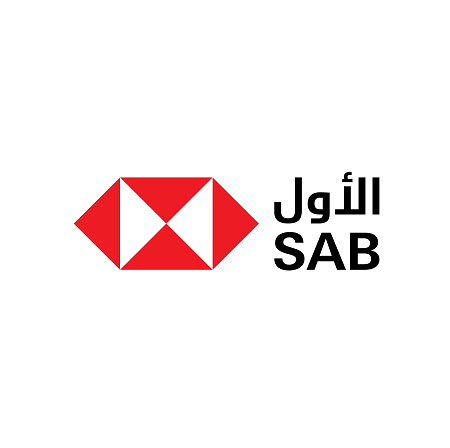-
Wealth Management
-
Low Limit Credit Cards
-
Debit Cards
-
Prepaid Card
-
ICSAB+
-
Finance
-
Help & Support
-
-
Help & Support
-
Cards
-
-
-
Tools & Resources
-
Ways to Bank
-
Help & Support
-
ESG at SAB
-
Security
-


Frequently Asked Questions
Have questions about SAB banking services? Let us help you with these frequently asked questions.
FAQSCustomer Service
Our friendly Customer Support team are on hand to help with any queries you have. We're here to help!
Contact UsQuick Links

Saudi sets sight on becoming MENA automotive hub

Saudi Arabia is charting a bold new path in the automotive industry, aiming not only to build vehicles but to transform the entire industry. Under the ambitious framework of Vision 2030, the kingdom is laying the groundwork to become a global leader in automotive innovation, manufacturing, and sustainability.
This transformation is being driven by a combination of forward-looking policy, strategic investments, localisation of global manufacturers, and a strong emphasis on developing local talent.
A key Saudi target is to achieve 30% electric vehicle (EV) penetration in Riyadh by 2030, a move that aligns with the country’s pledge to reach net-zero emissions by 2060. The domestic automotive industry is forecast to grow at an annual rate of 12% through 2030, fuelled by strategic investments, innovation, and workforce development in line with global trends.
At the heart of this transformation lies a broad-based strategy to introduce EVs, establish local manufacturing plants, and launch education and training initiatives to build a skilled workforce. Together, these efforts are positioning Saudi Arabia as a rising force in the global automotive value chain.
LOCALISING EV OPERATIONS
One of the kingdom’s key moves has been the localisation of major original equipment manufacturers (OEMs). By attracting global players and anchoring them within the Saudi economy, the government is reducing dependence on imports and creating a robust domestic supply chain. Four major OEMs and seven key suppliers have already set up localised operations, marking a significant milestone in the effort to strengthen the local industrial base.
Ceer Motors, Saudi Arabia’s first national automotive brand, is the flagship opportunity. A joint venture between the Public Investment Fund (PIF) and Hon Hai Precision Industry Co. (Foxconn), Ceer is developing a portfolio of electric vehicles that embody the future of mobility. Designed with a focus on e-mobility, connectivity, and autonomous technologies, Ceer is a statement of intent from the kingdom to lead in sustainable innovation.
Another pillar is Lucid Motors, which began assembling vehicles in Saudi Arabia in 2023. Backed by significant investment from the PIF, Lucid established one of the most high-profile EV manufacturing plants in the region. With ambitions to reach a production capacity of up to 150,000 vehicles per year, Lucid’s presence signals Saudi Arabia’s serious bid to become a hub for high-end EV production.
Boosting the ecosystem is a joint venture between the PIF and Hyundai Motor Company, which brings a highly automated manufacturing plant to the kingdom. With a total investment exceeding USD 500 million and production goals of 50,000 vehicles annually, including both internal combustion and electric models, this facility represents another leap forward in local manufacturing capacity. The PIF holds a 70% stake in the project, with Hyundai owning the remaining 30%, underscoring a strong public-private partnership model that supports industrial growth.
Alongside these major investments in manufacturing, Saudi Arabia is also cultivating the human capital needed to support and sustain the industry. The launch of the National Automotive & Vehicles Academy (NAVA) is a central part of this strategy. Designed to equip the local workforce with advanced skills in electric vehicle assembly and modern automotive technologies, NAVA represents a long-term investment in the people behind the machines.
The kingdom is also boosting the automotive supply chains, by fostering partnerships between local suppliers and global OEMs.
STRONG LICENCE GROWTH
The number of licensed factories and warehouses in 2024 grew a record 82% compared with 2023, according to the Saudi Food and Drug Authority (SFDA). The surge was attributed to several factors, most notably the development of the regulatory system, which has boosted investor confidence through a plan featuring several initiatives.
Among these initiatives is the re-engineering of licensing procedures along with other schemes aimed at stimulating industries and localising production, implemented in collaboration with various relevant government entities.
In the food sector, licenses were issued for 693 factories and 3,857 warehouses in 2024, while eight factories and 565 warehouses in the pharmaceutical sector obtained licenses. Licenses were also issued for 42 factories and 857 warehouses in the cosmetics sector, 24 factories and 1,405 warehouses in the medical devices sector, and 29 factories and 270 warehouses in the feed sector, along with the licensing of nine private laboratories.
ECONOMY
Employment rate remains on an upward trajectory, despite challenging market conditions, as the kingdom’s real GDP expands.
ESG
The project will source 100% of its electricity from clean energy and aims to support high-density computing workloads amid skyrocketing demand for data.
GLOBAL ECONOMY
An escalation of trade restrictive measures could heighten risk of disrupting worldwide supply chains and stifling exports and imports.
Your are now leaving this site
Your are now leaving this site
You are about to leave this site. You are being redirected to an external site. Would you like to leave this site?
© SAB, Saudi Arabia. All Rights Reserved, 2025
Saudi Awwal Bank, a listed joint stock company, incorporated in the Kingdom of Saudi Arabia, with paid in capital of SAR 20,547,945,220, commercial registration certificate 1010025779, unified number 7000018668, Mailing Address: P.O. Box 9084, Riyadh 11413. National Address: 7383 King Fahad Branch Rd, 2338 Al Yasmeen Dist., 13325 Riyadh, Kingdom of Saudi Arabia, Tel. +966 11 4050677, www.sab.com, licensed pursuant to the Council of Ministers Resolution No. 198 dated 06/02/1398H and Royal Decree No. M/4 dated 12/08/1398H, and regulated and supervised by the Saudi Central Bank.

